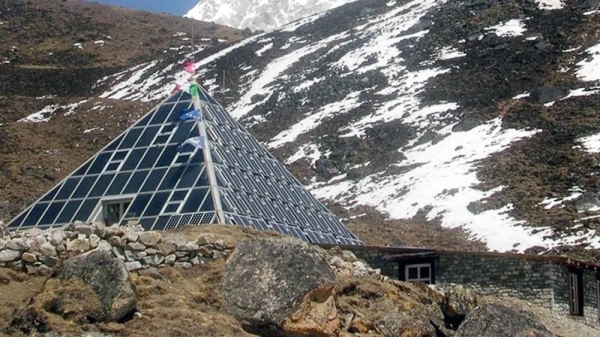
RIYADH: Saudi Arabia’s capital is transforming in an attempt to reduce the effects of climate change.
As a part of the Saudi Green Initiative, the Kingdom aims to plant 10 billion trees, and Riyadh and its surroundings will, according to Dr. Osama Ghanem Al-Obaidy, adviser and professor of law at the Institute of Public Administration, be the site of 7.5 million of them.
Al-Obaidy told Arab News: “This project is one of the most ambitious tree-planting projects ever undertaken worldwide. The (7.5 million) trees (around Riyadh) will be selected from those compatible with Riyadh’s weather and environment. New irrigation networks will be established to use recycled water. This will raise the quantity of recycled water being used across the city.”
He added that the project will help improve and promote Riyadh’s image as an environmentally friendly metropolis, and that it will reduce the capital’s energy consumption and ultimately reduce health-care expenditure by promoting healthier lifestyles for its residents.
“It will also boost Riyadh’s position in the World’s Top 100 most-livable cities ranking,” Al-Obaidy said. “But it is important to raise the local community’s awareness of the importance of preserving and protecting trees and green spaces and the environment in general in order to achieve the project’s goals and improve the quality of the environment and life in our beloved capital city.”
Professor Salem Alghamdi from the College of Agriculture at King Saud University told Arab News, “Humans have impacted the earth’s processes to the point that they have been transformed. Cities are home to the vast majority of the world’s inhabitants. The United Nations General Assembly established its Sustainable Development Goals to improve people’s quality of life in a changing environment. These broad-term objectives enumerate the most pressing issues confronting our generation. Planting and protecting trees, especially in urban areas where most people reside, is an effective technique for achieving these goals.” FASTFACTS
• Saudi Arabia launched an ambitious $23 billion project in March 2019 to create vast open green areas in the capital, Riyadh, including the world’s biggest city park.
• Professor Sultan Ayoub Meo claimed that a single hectare of land, when 11 percent of it is covered by plants, can remove 9.7 kg of air pollutants every year.
He added: “Providing people with green areas and planting and maintaining trees is an important strategy to alleviate the issues that urban populations face. The reduction of air pollution is one of the most important benefits that urban woods may give.”
Alghamdi said that air pollution — from particulate matter, ozone, carbon monoxide, polycyclic aromatic hydrocarbons, nitrogen dioxide, and sulfur dioxide — has been linked to bronchitis, intraocular pressure, heart attacks, changes in autonomic and microvascular function, autism, and blood pressure issues, as well as to cognitive-development issues in children.
“The literature shows that there is a relationship between trees, green areas, and mortality,” he said. “More trees — particularly mature species planted in strategic areas — might reduce particle matter and other kinds of air pollution, potentially lowering mortality and morbidity in our cities.”
Saudi Arabia is also collaborating with other Arab governments on a Middle East Green Initiative, which includes a pledge to plant an additional 40 billion trees, the world’s largest forestation effort.
Clean-energy output in the Middle East now stands at 7 percent, and Saudi Arabia has stated that it will cooperate with its neighbors to reduce carbon emissions from hydrocarbon production in the region by more than 60 percent.
Alghamdi said: “There is a need for government research institutes, universities, colleges, and schools in the Kingdom to launch such policies, including multimedia campaigns, to explain the benefits of tree plantation, and its impact on human health, climate change, and the reduction of carbon dioxide.”
Professor Sultan Ayoub Meo from King Saud’s University College of Medicine said the Saudi Green Initiative’s 10 billion tree policy will reduce air pollution, diabetes, and cardiorespiratory, endocrine, neurological, and infectious diseases.
“Environmental pollution is an emerging global public-health problem,” he said. “Air pollutants such as particulate matter PM2.5 and PM10, carbon monoxide, and ozone cause various illnesses and act as a risk factor, particularly in the COVID-19 pandemic.”
Meo explained that air-pollution levels are unsafe in 80 percent of cities around the world. Air pollution causes 7 million deaths yearly, he said — the equivalent of 15.5 deaths per minute, resulting in a $2.9 trillion loss globally.
He praised the plan to transform Riyadh, saying it would help to minimize environmental pollution, tackle climate change, and reduce disease regionally and worldwide.












